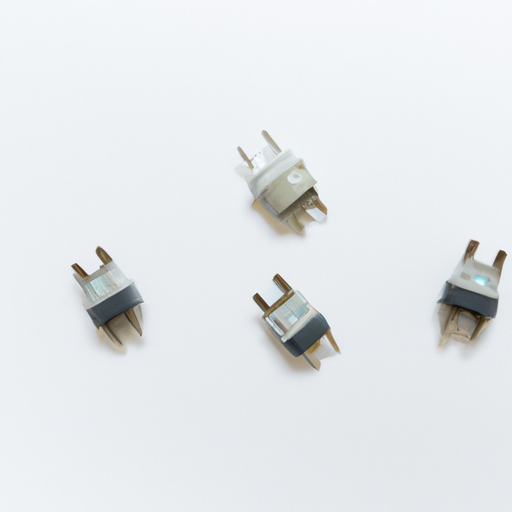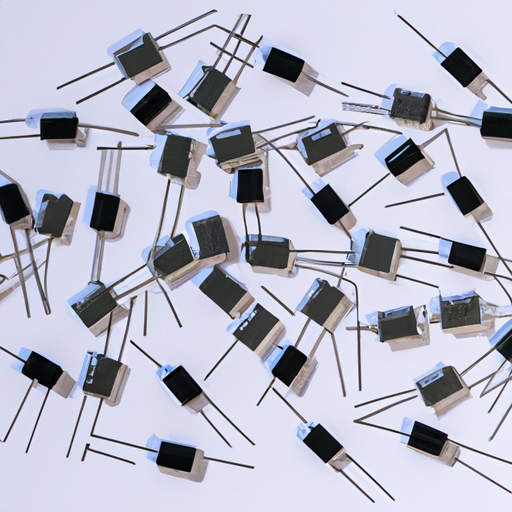What Industries Do Metal Resistor Application Scenarios Include?
I. Introduction
In the world of electronics, resistors play a crucial role in controlling the flow of electric current. Among the various types of resistors, metal resistors are particularly significant due to their precision, reliability, and versatility. Metal resistors are widely used across multiple industries, making them an essential component in modern technology. This article explores the definition of metal resistors, their importance in various sectors, and the specific application scenarios where they are utilized.
II. Understanding Metal Resistors
A. Composition and Types of Metal Resistors
Metal resistors are made from conductive materials that provide a specific resistance value. The most common types of metal resistors include:
1. **Metal Film Resistors**: These resistors are made by depositing a thin layer of metal onto a ceramic substrate. They offer high precision and stability, making them ideal for applications requiring accurate resistance values.
2. **Metal Oxide Resistors**: Constructed from a metal oxide film, these resistors are known for their high-temperature stability and reliability. They are often used in high-power applications due to their ability to handle significant voltage and current.
3. **Wirewound Resistors**: These consist of a wire wound around a core, typically made of ceramic or fiberglass. Wirewound resistors are known for their high power ratings and are commonly used in applications where high precision and power handling are required.
B. Key Characteristics
Metal resistors possess several key characteristics that make them suitable for various applications:
1. **Precision and Accuracy**: Metal resistors are known for their tight tolerance levels, which means they can provide very accurate resistance values. This is crucial in applications where even minor deviations can lead to significant issues.
2. **Temperature Coefficient**: The temperature coefficient of a resistor indicates how its resistance changes with temperature. Metal resistors typically have low temperature coefficients, ensuring stable performance across a range of temperatures.
3. **Power Rating**: The power rating of a resistor indicates the maximum amount of power it can dissipate without failing. Metal resistors are available in various power ratings, making them suitable for both low and high-power applications.
III. Key Industries Utilizing Metal Resistors
Metal resistors find applications in a wide range of industries, each benefiting from their unique properties.
A. Electronics and Consumer Goods
In the electronics sector, metal resistors are integral components in circuit boards, where they help regulate current and voltage levels. They are commonly found in consumer goods such as televisions, smartphones, and computers, ensuring that these devices operate efficiently and reliably.
B. Automotive Industry
The automotive industry relies heavily on metal resistors for various applications. They play a critical role in Engine Control Units (ECUs), where they help manage engine performance and emissions. Additionally, metal resistors are used in safety systems, such as anti-lock braking systems (ABS) and airbag deployment systems, where precision and reliability are paramount.
C. Telecommunications
In telecommunications, metal resistors are essential for signal processing and networking equipment. They help maintain signal integrity and reduce noise in communication systems, ensuring that data is transmitted accurately and efficiently.
D. Aerospace and Defense
The aerospace and defense sectors require components that can withstand extreme conditions. Metal resistors are vital in avionics systems, where they contribute to navigation, communication, and control systems. Their reliability is crucial in military equipment, where failure can have serious consequences.
E. Medical Devices
In the medical field, metal resistors are used in diagnostic equipment and patient monitoring systems. Their precision and stability are essential for accurate readings in devices such as electrocardiograms (ECGs) and blood pressure monitors, where patient safety is a top priority.
F. Industrial Automation
Metal resistors play a significant role in industrial automation, particularly in control systems and robotics. They help regulate the operation of machinery and ensure that automated processes run smoothly and efficiently.
G. Renewable Energy
As the world shifts towards renewable energy sources, metal resistors are increasingly used in solar inverters and wind turbines. They help manage power conversion and ensure the efficient operation of renewable energy systems, contributing to a more sustainable future.
IV. Emerging Trends and Innovations
A. Advancements in Metal Resistor Technology
The field of metal resistors is continually evolving, with advancements in technology leading to improved performance and reliability. Innovations such as thin-film technology and advanced manufacturing processes are enhancing the precision and durability of metal resistors.
B. Integration with Smart Technologies
As smart technologies become more prevalent, metal resistors are being integrated into various devices to enhance their functionality. For example, smart home devices utilize metal resistors to ensure accurate sensor readings and efficient operation.
C. Sustainability and Eco-Friendly Practices
With growing concerns about environmental sustainability, manufacturers are exploring eco-friendly practices in the production of metal resistors. This includes using sustainable materials and processes that minimize waste and energy consumption.
V. Challenges and Considerations
A. Limitations of Metal Resistors
Despite their many advantages, metal resistors do have limitations. For instance, they can be more expensive than other types of resistors, which may deter some manufacturers from using them in cost-sensitive applications.
B. Market Competition and Alternatives
The resistor market is highly competitive, with various alternatives available, such as carbon film and thick film resistors. Manufacturers must carefully consider the specific requirements of their applications when choosing the appropriate resistor type.
C. Regulatory Standards and Compliance
Metal resistors must comply with various regulatory standards, particularly in industries such as aerospace, automotive, and medical devices. Ensuring compliance can be a complex process, requiring manufacturers to stay updated on industry regulations.
VI. Conclusion
Metal resistors are indispensable components in a wide range of industries, from electronics and automotive to aerospace and renewable energy. Their precision, reliability, and versatility make them suitable for various applications, ensuring the efficient operation of countless devices and systems. As technology continues to advance, the future outlook for metal resistors remains promising, with ongoing innovations and a growing emphasis on sustainability. Understanding the importance of metal resistors and their applications can help industries leverage their benefits to enhance performance and reliability in their products.
VII. References
- Academic Journals
- Industry Reports
- Manufacturer Specifications and Guidelines
In conclusion, metal resistors are more than just passive components; they are vital to the functionality and reliability of modern technology across various sectors. As industries continue to evolve, the role of metal resistors will only become more significant, paving the way for innovations that enhance our daily lives.













